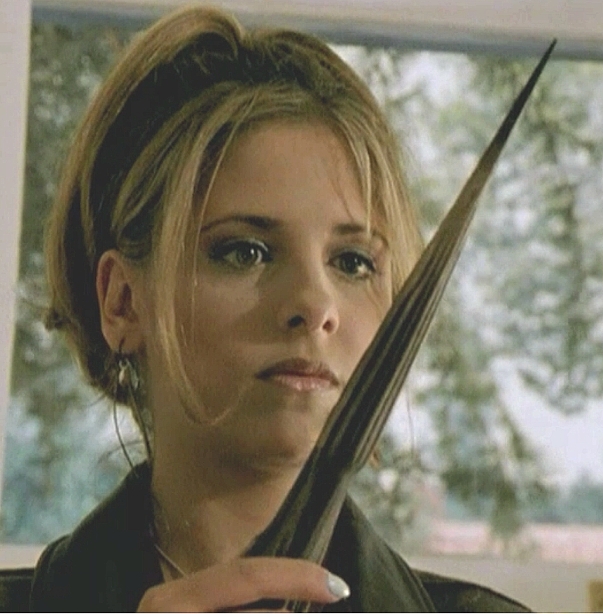These days it
seems that writers aren’t content just to reboot a franchise story—the new
trend seems to be hitting the reset button. Last week’s Doctor Who 50th
Anniversary special was just one example of a story arc which not only affects
the future of a series, but retroactively changes everything that’s come
before.
For the serious
fan, the reset button can lead to some serious headaches.
Here are some re-sets in my fandoms, and my Head-Scratcher Score™
On a scale of 1-5:
1 is clever despite being mildly irritating
5 is I’ll never be able to watch or
read the same way again, dammit.
Doctor Who’s 50th Anniversary Special
(if you haven’t seen it yet, “Spoilers!”)
Ask almost any Whovian, and they’ll tell you
Steven Moffat, the current show-runner, has some major cojones when it comes to
reconfiguring the world of Doctor Who.
But he really stepped in it with some fans by rewriting the modern Doctor’s
most defining moment. I won’t claim to be an expert on Classic Who, so I’ll
stick to modern Doc-lore. Since the show was revived in 2005, his defining
trait has been his guilt over ending the Time War by destroying not only the
Daleks but also his home world of Gallifrey in the process. But Moffat’s
anniversary special rewrote that history, so that now the planet’s merely
hidden, possibly in a painting (you have to love SF sometimes).
And the Doctor’s overwhelming guilt—that drives not only his personality development but has also guided every choice he’s
made since then? Suffice it to say it will be hard to re-watch without thinking
about this conundrum.
Head Scratcher Score: 3
Upsetting, but I can get past it, especially if it
means re-watching the David Tennant years.
Star Trek:
The New Movies
Like Moffat, J.J.
Abrams had time travel in his arsenal, so resetting the world of Trek was as
easy as sending classic-Spock out into space with some vaguely named “red
matter” and opening up a temporal rift which changed Kirk’s destiny, and that
of the rest of his crew along with it. To me, the most engaging part of this story
was watching a Kirk who grew up aimless and angry over losing his father still manage to blunder into his
destiny.
If, like me, you adore classic Star Trek,
it will probably creep into your brain when you re-watch an episode featuring
the planet Vulcan “oh, hey, everything’s different now, so that (sort of) never
happened”...but this move was still such a brilliant way to reboot the franchise. I’m not too sure, though, about the moment in the second new film when new-Spock rings
up old-Spock for advice about Khan. It seemed cool until I really thought about
it—what’s to prevent the old-version of Spock from just giving the new one
a list of People and Places to Avoid? The next movie would literally be the
ship just peacefully cataloging gaseous anomalies, nowhere near any angry
Klingons or troublesome Tribbles.
Head Scratcher Score: 2
This would be a 1 except for the aforementioned
Advice From Past Spock interlude.
Buffy the Vampire Slayer—2.0
In 2001, Buffy changed networks—and rose from the
dead. Buffy’s creator, Joss Whedon, didn’t have time travel at his disposal—but
he did have magic, which witch (and Buffy’s bff) Willow employed to bring Buffy back to life...after a disturbingly long period of decay, I might add.
Buffy 2.0 reset the show in a number of ways—when
Spike warned that she “came back wrong” it definitely seemed to be true. A Buffy
who was willing to sleep with Spike was certainly a new version of our old
heroine. But the most reset-buttony moment of this season came in episode
seventeen, “Normal Again,” in which it is suggested to the audience that maybe
there never were any demons, witches, or vampires. Maybe crazy Buffy had been
imagining it all as part of her psychotic episodes, which she'd been having for years, locked inside a mental hospital.
Head Scratcher Score: 4
Still adore the show, but, yeah, this will
bother me forever.
Twilight Love
Oh, Stephanie Meyer, you do create characters I
really care about, and then you go crazy with the deus ex machina and the
absurdly happy endings—and the reset button.
This button, of course, reset the entire love
story of Bella and Jacob. Now, I know that clearly Meyer meant for us to root
for Bella and Edward all along (TEAM JACOB FOREVER!) But the love triangle was
what kept me reading those thousands of pages. Now, if I go back, I’ll know that
Jacob was just drawn to Bella so he could fall in love with her baby.
Head Scratcher Score: 5
Ruined.
How do you feel about the reset button? Clever
storytelling, or plot to ruin fan’s lives?








